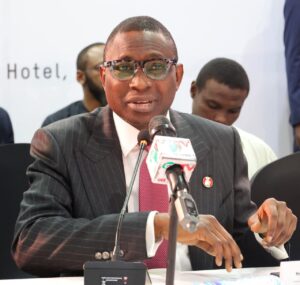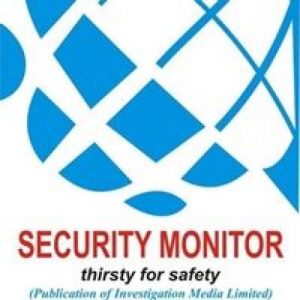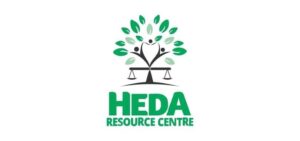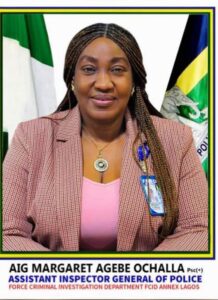“The Poor Must Also Live”, Says FIWON As The World Marks 2017 Habitat Day
The Federation of Informal Workers’ Organizations of Nigeria (FIWON) and its allies and civil society partners join the rest of the world to mark the 2017 World Habitat Day and the Urban October. It would be noted that the United Nations has designated the first Monday of October of every year as World Habitat Day. The theme for World Habitat Day 2 October 2017 is Housing Policies: Affordable Homes. According to the UN, the “purpose of World Habitat Day is to reflect on the state of our towns and cities, and on the basic right of all to adequate shelter. It is also intended to remind the world that we all have the power and the responsibility to shape the future of our cities and towns.” World Habitat Day was established in 1985 by the United Nations General Assembly through Resolution 40/202, and was first celebrated in 1986.
Each year, World Habitat Day takes on a new theme to bring attention to UN-Habitat’s mandate to promote sustainable development policies that ensure adequate shelter for all. This year’s World Habitat Day will focus on promoting all levels of government and all relevant stakeholders to reflect on how to implement concrete initiatives to ensure adequate and affordable housing in the context of the implementation of the New Urban Agenda at all levels, as well as the achievement of the Sustainable Development Goals. In furtherance of these objectives, the Urban October was launched in 2014, as an overarching platform where partners can converge, debate and take actions on urban issues. It encompasses two important United Nations urban related flagship events: World Habitat Day, October 2 and World Cities Day, Oct. 31.
Urban October is also a platform where individuals, organizations, cities and governments can engage in activities to address challenges and discuss solutions to urbanization at local, regional and national levels. Urban October focuses on the Sustainable Development Goals where particular attention to cities and human settlements is highlighted especially –
Goal 11: Make cities and human settlements inclusive, safe, resilient and sustainable.
Given the reality in Nigeria today especially in the Lagos megalopolis and other emerging cities like Port Harcourt and Owerri where urban development policies have taken on destructive anti-people character, the words of the UN is particularly relevant: “…economic inequality is closely linked with gender inequality and spatial inequality, leading to the exclusion and often criminalization of disadvantaged and vulnerable groups such as slum dwellers, migrant workers, children, young people, older persons, persons with disabilities, indigenous peoples and minority groups.” These words coincide with the conclusions of FIWON’s field survey, tagged ‘The Poor also, Must Live!’ published in 2016 on how urban policies have proved ruinous to millions of Lagos informal workers especially street and market vendors and other informal working groups. The FIWON report highlights how under the elitist urban development policies of the Lagos State government, hundreds of thousands of informal workers have been dispossessed of the spaces in which they work as scores of markets, mechanic villages and other production clusters have been demolished with the spaces taken over by private interests under opaque Public Private Partnerships (PPPs). The traders and other informal workers who are thereby forced out of their working spaces are left to work on available spaces in street corners, motor parks and bus stops where shockingly, they are relentless targeted for arrest, extortion and imprisonment by the Lagos State Environmental Sanitation Corps hitherto known as the Kick Against Indiscipline (KAI) Corps. This quasi – military outfit exacts damaging extortions on victims ‘captured’ on the streets and when they cannot pay, simply dumps them in prisons. While thousands of arrested informal workers have disappeared without trace, scores of thousands have come back from prison completely broken and dehumanized, often looking like human vegetables.
Allied to this scenario is the continued violent eviction of residents of informal housing all over Lagos State with hundreds of thousands of dwellers of informal settlements from Ijora Badia, Bariga, Ilaje, Otumara, Ebute Metta, Otto Ilogbo, Makoko, etc and of course, the latest, Otodo Gbame destroyed last April with thousands of residents violently evicted while several people lost their lives. Despite widespread public outcry, and subsisting court cases, the Lagos state government continues to announce plans of more demolitions and violent evictions. Worrying is the increasing trend of other state governments adopting the violent shock and awe tactics of the Lagos State government. This is most notable in Rivers and Imo states whose state governments have also carried out high profile violent eviction of informal workers from their homes and work places.
We therefore use the occasion of this year’s World Habitat Day to call on the Lagos State Government and others copying its destructive tactics to urgently review their urban development strategies to embrace inclusive policy making processes which must necessarily be participatory with adoption of low-cost development strategies which budget for rehabilitation, resettlements and compensation from the outset and which is generally affordable. With a housing deficit of 17 million units of houses, according to the Federal Ministry of Housing, the present elitist attitude of violently displacing the poor to make way for a few expensive, low-density private sector driven housing estates and ‘ultra- modern markets’, the Nigerian urban housing and informal work space quagmire will never be resolved while the incessant violence meted to the urban poor will invariably boomerang into violent irredentism, some of which will be criminal in nature. With emergence of horrible cult groups called badoo in Ikorodu and awawa in Agege, it is time that government rethinks its urban development policies drawing on its own history as we recall the pace setting era of Alhaji Lateef Jakande civilian administration (1979-9183) in Lagos State who implemented an affordable massive social housing programme which settled the problems of affordable housing in Lagos for an entire generation while at the same time building several production clusters such as mechanic villages, wood workers hubs, aluminum fabrication clusters etc.
The Federation of Informal Workers’ Organizations of Nigeria (FIWON) and its partners will embark on a concerted campaign throughout the Urban October, that is from now till October 31 which is the UN World City Day and beyond until the overarching objective of inclusive, pro- working people urban planning is embraced in Lagos and other urban conurbations in Nigeria.








